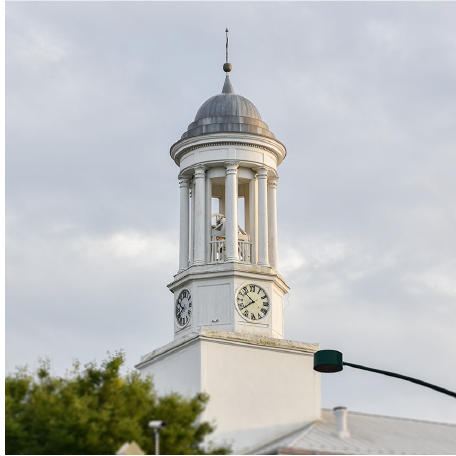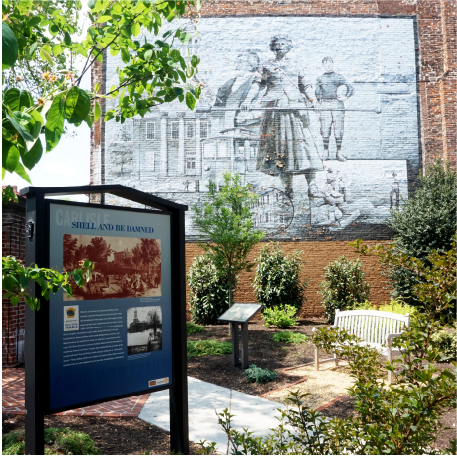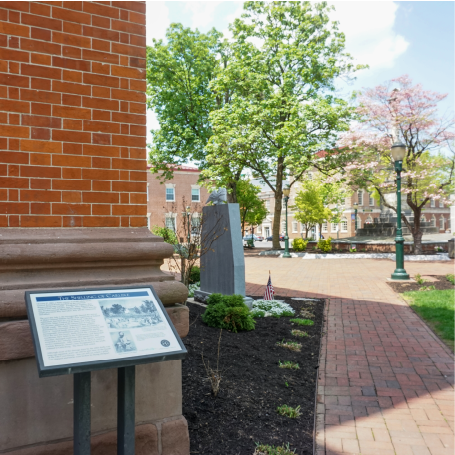
Carlisle
About Carlisle
 Since 1981, the Downtown Carlisle Association has been striving to enhance the civic, cultural and economic vitality of the entire community – retail, service, academic, government and industry. Carlisle has the distinction of being one of the longest, continuous running Main Street based programs in the Commonwealth.
Since 1981, the Downtown Carlisle Association has been striving to enhance the civic, cultural and economic vitality of the entire community – retail, service, academic, government and industry. Carlisle has the distinction of being one of the longest, continuous running Main Street based programs in the Commonwealth.
If you’ve never been, we encourage you to visit Carlisle, PA. Our historic charm is enhanced by our modern art district, our antique mall and showrooms, our restaurants featuring cuisine from around the world, our breweries and wine bars and our gift shops, unique apparel and secondhand stores.
Our town is similar to other small towns, with one exception: the incredible, friendly community who live and work and play here. With oversight from a community-based volunteer board of directors, regional liaisons, volunteers, and borough leadership, the DCA provides an array of programs dedicated to achieving the common goals of Carlisle and making it a wonderful place for visitors, new residents and life-long locals.
History
Carlisle was founded in 1751 as a county seat of the newly-created Cumberland County. Both the town and the county were intended by the colonial General Assembly and the Penn family in Philadelphia to be the opening of the frontier west of the Susquehanna River. This meant a fiery and violent era of frontier drama for over ten years. World wars swept over the town and county and brought such figures as Benjamin Franklin, Hugh Mercer, Henry Bouquet, and John Forbes to the square of Carlisle.
The French and Indian War of the 1750s and the 1760s trained a generation of leaders for the American Revolution in the 1770s and the 1780s. The first battalion of what became the United States Army was raised here. The town was home to three signers of the Declaration of Independence. Men and women from the town went off to war and returned with fame and rank that lifted Carlisle to new distinction. Part of the recognition of the new status was the founding of Dickinson College in 1783, the first college chartered in the new nation.
President George Washington stayed in town for a week in 1794 as the only president to act as commander-in-chief of troops in the field when he organized federal suppression of the Whiskey Rebellion in western Pennsylvania.
The Civil War in form of the critical Gettysburg campaign passed through the county and the town. Many of the Confederate officers who camped on the grounds of Dickinson College had been stationed at the cavalry school at Carlisle Barracks before the war. Dickinson Law School was founded after the war, as was the Indian Industrial School at the Barracks, a school that attempted to be an introduction to industrialized American society for the displaced Native Americans from all over the country.
Carlisle and Cumberland County found both growth and consolidation in the Twentieth Century. Businesses rose in crystals, rubber manufacturing, and heavy-metal casting. The town sent off sons and daughters to be great artists, poets, and novelists as well as missionaries, generals, and explorers. The US Army War College came to the Barracks in 1951 and has provided training for military leadership ever since.
A network of road signs and historical markers throughout the town highlight this colorful history. They raise such names as Jim Thorpe, Molly Pitcher, Franklin, and Washington. Well-kept cemeteries and parks are like books of biography for the town.
As the Twenty-First Century comes of age, Carlisle will sort out its destiny with the same mix of commerce, professionalism, and neighborhood domesticity that sustained it from the very beginning over 250 years ago. A heritage of well-known and unknown heroes, heroines, and families sustains the town as it shapes its future.

President George Washington stayed in town for a week in 1794 as the only president to act as commander-in-chief of troops in the field when he organized federal suppression of the Whiskey Rebellion in western Pennsylvania.

A network of road signs and historical markers throughout the town highlight this colorful history. They raise such names as Jim Thorpe, Molly Pitcher, Franklin, and Washington. Well-kept cemeteries and parks are like books of biography for the town.
Historical Brief Courtesy of Jeff Wood, Proprietor
Whistlestop Bookshop,
129 West High Street
www.whistlestoppers.com
